Protect the bees! The Irish way
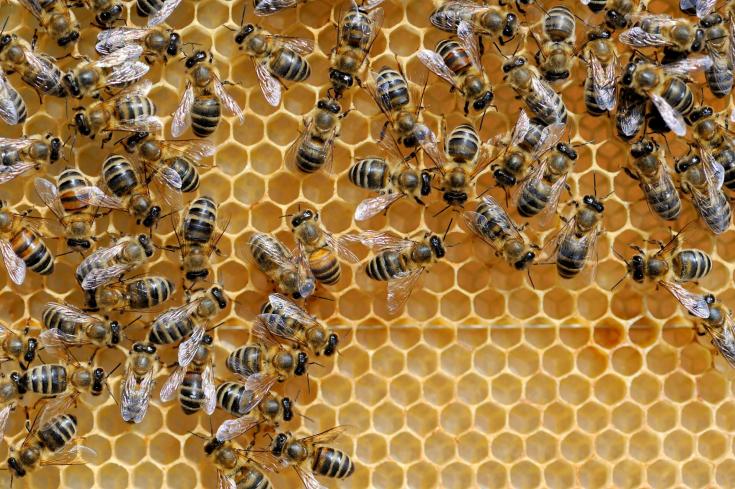
The abundance and variety of wild pollinator species as well as the genetic diversity within their populations are key indicators that biodiversity is thriving, that ecosystems are properly delivering their services and that climate change effects are under control. For many years now, science has established that this is no longer the case, as the number of bees, butterflies, moths and many other insects, birds and small mammals with an indispensable role in plant pollination is declining and their genetic pool is shrinking at an alarming rate, in Europe and the wider world.
According to the IUCN European Red List 1/3 of bee and butterfly species on our continent have a declining population and about 10% are threatened with extinction. This is caused by the unsustainable use of chemical pesticides, land use change, invasive alien species and climate change, among others. In Europe, many efforts are underway at all levels to reverse these worrying trends which threaten the very survival of our environment, wellbeing as well as the economy.
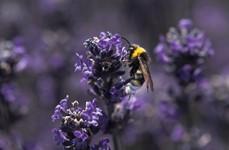
Indeed, these declines place a large question mark on the sustainability of an annual agricultural output worth EUR 3.7 billion which relies on insect pollinators. Since 2018 - with the establishment of the EU Pollinators Initiative - European cities and regions have an overarching policy framework to improve knowledge on pollinator decline, address its causes and consequences, raise awareness on the issue and mobilise society as a whole to collaborate to save the bees. Identified as a good practice within the Interreg Europe PROGRESS project on promoting improved governance for ecosystem services, the All-Ireland Pollinator Plan – AIPP (2015-2020) is certainly among the forerunners that informed and inspired action at the EU level.
Turning Ireland into a pollinator-friendly island
Developed by a fifteen member All-Ireland steering group, the AIPP pursued the overarching goal of turning Ireland, North and South, into a pollinator friendly island. In order to do so, the first Plan (2015-2020) established 24 specific targets to be implemented through 81 distinct actions on farmland, private properties as well as the public domain. The AIPP proved instrumental in raising awareness on pollination as an ecosystem service, to expand the knowledge about it and to support beekeepers and growers over the last five years.
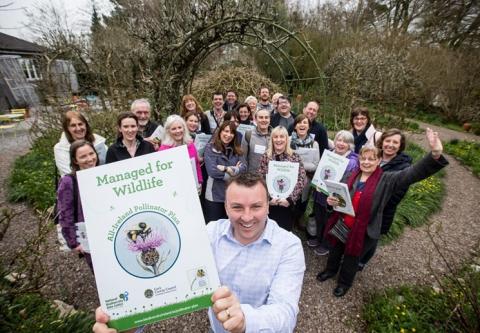
The striking success of the AIPP as an inclusive and participatory policy framework is demonstrated by the fact that it enjoyed the support of 108 organisations (both governmental and NGOs) and over 230 businesses in Ireland and Northern Ireland, which enabled its almost full implementation. 96% of actions foreseen by the Plan were in fact completed thanks to the cooperation among all kinds of actors, ranging from farmers to municipalities, from transport authorities to gardeners and from schools to citizens’ associations.
As a pollinator strategy, the AIPP also played a major role in informing similar policy initiatives in European regions and countries like Scotland, Norway and the Netherlands. Dr Úna FitzPatrick, Senior Ecologist at the National Biodiversity Data Centre and Coordinator of the AIPP, is of the view that the continuation of the plan during the 2021-2025 period is of the utmost importance:
«Restoration of biodiversity across farmed, natural and urban landscapes is crucial for sustainable livelihoods and humanity’s well-being. To build on the success of the first phase, our new Plan is even more ambitious and involves engaging ever-increasing networks of people. The AIPP has shown – across every sector and in every corner of Ireland – that people do care about nature, and that we can come together to make changes for the better».
Engaging farmers in biodiversity
Embedded in the AIPP framework, the ‘Protecting Farmland Pollinators’ (PFP) scheme, is another excellent PROGRESS good practice from Ireland. It is managed by Ireland’s National Biodiversity Data Centre and consists of a pollinator scoring and results-based payment method that serves the purpose of disseminating agroecological practices that are beneficial to pollinators and biodiversity.
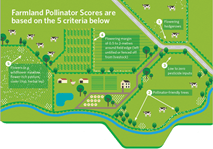
Under the PFP, a score is calculated based on existing pollinator-friendly management practices at farm level. In the long term, it is designed to help farmers understand how bee-friendly their agriculture is and to guide them towards the uptake of simple and low-cost solutions improving their performance while maintaining high levels of productivity. Farmers taking part in the PFP scheme receive an annual payment depending on their overall pollinator score. The score is determined in accordance with the outcome of a qualitative and quantitative assessment of the agricultural landscape features and the agroecological practices that are maintained and put in place with a view to establishing favorable conditions for wild pollinators. Dr Úna FitzPatrick - who is also Coordinator of the PFP project - noted that:
«as we move towards ambitious EU targets to protect farmland biodiversity, the PFP project demonstrates that by collaborating with farmers, we can create a new mechanism that works for everyone. The scoring system engages farmers in the process and enables them to look at all the pieces that are assembled to create biodiversity habitats on their farms. It offers flexibility and rewards them for their efforts in protecting ecosystem services».
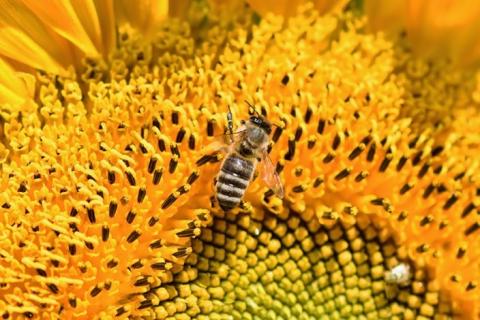
As a project in the framework of the European Innovation Partnership for Agricultural Productivity and Sustainability (EIP-AGRI), the PFP commenced in 2019 and is expected to run until 2023 thanks to the support coming from the European Agricultural Fund for Rural Development (EAFRD). Asked about the evidence of the success of the scheme gathered over the last two years Dr Owen Douglas, EU Project Officer at the Eastern & Midland Regional Assembly (EMRA), commented:
«The positive response of the participating farmers and the success of the project in its first year has demonstrated how the scoring and payments system could be rolled out on a national scale as an eco-scheme or other results-based agri-environment programme. It also demonstrates the potential to secure long-term funding for results-based payment schemes through the reformed Common Agricultural Policy, in alignment with the ambition of the European Green Deal».
Protecting pollinators at EU level: where do we stand?
Policy measures such as the AIPP and the PFP provide important contributions to the EU Pollinators Initiative. However, the picture that emerges from its recent progress implementation report shows that the road to full pollinator protection in Europe remains a long one. Local and regional policymakers can play a decisive role in stepping up efforts towards the aforementioned goal and they can do so with the help of EU funds and in the backdrop of an EU policy framework that is expected to be very supportive of bees and other pollinators.
The new EU Biodiversity and Farm-to-Fork Strategies have set targets on restoring nature, halving the use of chemical pesticides and converting at least 10% of farmland to high-diversity landscape features by 2030. If attained, these targets will have a positive effect on pollinator health and number as well as on the overall vitality of biodiversity and ecosystem services.
The Zero Pollution Action Plan will also contribute to this by addressing sources of pollution other than chemical pesticides which are harmful to pollinators. Furthermore, the new EU Strategy on Climate Change Adaptation will guide cities and regions in strengthening their green infrastructures and in rolling out more nature-based solutions, thereby establishing better conditions for pollinators. Dr Owen Douglas from EMRA agrees on the increased supportiveness of the current EU policy framework towards actions to better protect pollinators and hopes the Irish PROGRESS good practices could inspire action across the continent:
«In its report of July 2020, the European Court of Auditors clearly stressed that EU measures to date have been largely ineffective in preventing pollinator decline. However, the latest policy developments under the European Green Deal seem to be on the right track. Moreover, the AIPP and the related PFP project demonstrate that it is possible to reverse pollinator losses and help restore healthy populations when all segments of society – at the local, regional and national levels – work collectively to ensure the sustainability of our food system, avoid additional economic impacts on agriculture, and protect the health of the environment».
For more inspiration and information
- All-Ireland Pollinator Plan (National Biodiversity Data Centre, Ireland)
- Protecting Farmland Pollinators (National Biodiversity Data Centre, Ireland)
- EU Pollinator Information Hive (European Commission)
- LIFE projects relevant for pollinators (European Commission)
- Horizon 2020 projects relevant for pollinators (European Commission)
- Video on the EU Pollinators Initiative (European Commision)
- Video on the All-Ireland Pollinators Plan (PROGRESS)
- Good practice on ‘Protection of bumblebees in central Poland’ (BIOGOV)
- ICLEI, A guide for pollinator-friendly cities
- IEEP, Key recommendations for supporting pollinator-friendly farming in the EU